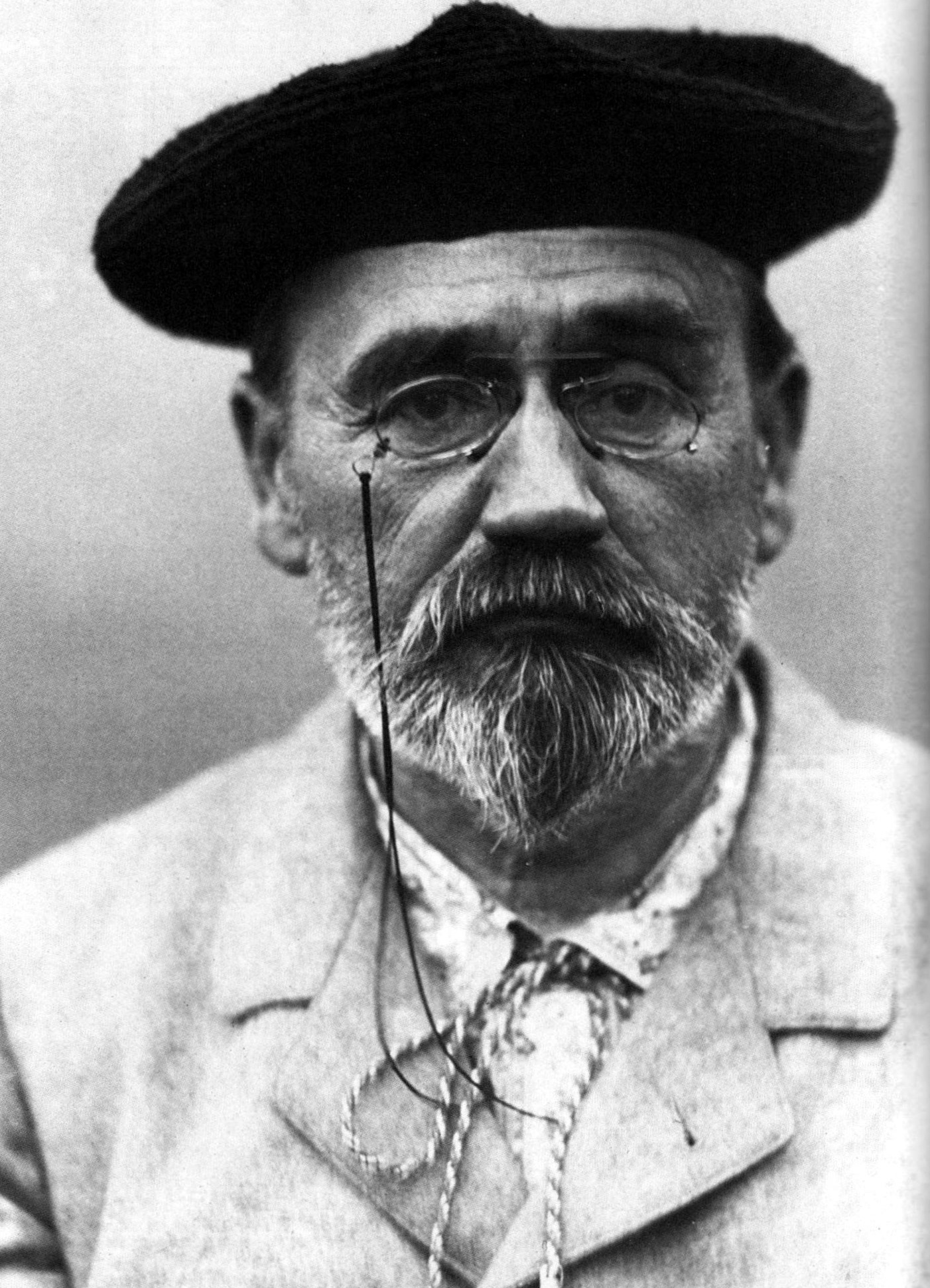Emile Zola frasi celebri
“Il mondo è pieno di brava gente. Quando si è onesti e si lavora il premio vien sempre…”
Origine: Il sogno, I traduzione, p. 66-67
Origine: Da Germinal, traduzione di L. G. Tenconi, Fabbri Editori, 2001.
Frasi sulla felicit di Emile Zola
“La felicità per noi poveretti sta solo nell'umiltà e nell'ubbidienza.”
Origine: Il sogno, Maria Azzi Grimaldi, p. 51
Origine: La science a-t-elle promis le bonheur? Je ne le crois pas. Elle a promis la vérité, et la question est de savoir si l'on fera jamais du bonheur avec de la vérité. (da Discours à l'Assemblée générale des étudiants de Paris, 18 maggio 1893, in Œuvres complètes, ed. François Bernouard, 1927, vol. 50, p. 288)
Emile Zola Frasi e Citazioni
Souvarine: III, I; 1951, p. 133
Germinale
Thérèse Raquin
Thérèse Raquin
Thérèse Raquin
“La morte è più potente dell'amore. È una sfida gettata all'esistenza.”
Variante: La morte è più forte dell'amore, è una sfida all'esistenza.
Origine: Il sogno, I traduzione, p. 39
“Quando non si lavora, gli arnesi se ne scappano!”
Origine: Il sogno, Maria Azzi Grimaldi, p. 39
“Il mondo è pieno di brave persone! Quando si è onesti e si lavora, si è sempre ricompensati.”
Origine: Il sogno, Maria Azzi Grimaldi, p. 51
“È così bello vivere, e la vita è così dolce che non può essere cattiva!”
Origine: Il sogno, Maria Azzi Grimaldi, p. 51
“La verità è in cammino e niente la potrà fermare.”
Origine: La verité est en marche: rien ne peut plus l'arrêter. (dal Figaro, 25 novembre 1897)
“Un'opera d'arte è un angolo della creazione visto attraverso un temperamento.”
Origine: Da Mes haines.
Origine: Citato in Roberto Iovino, Gli Strauss: una dinastia a tempo di valzer, Camunia, 1998.
«Non è quello che veniva a cercare», ho risposto. In effetti, se tutti vogliono guarire, è la Terra che vogliono, non il Cielo.
Origine: Da Viaggio a Lourdes, Medusa, Milano, 2010, p. 42.
“I soli piaceri che restavano [ai minatori], quello di sborniarsi e d'ingravidare la moglie.”
III, III; 1951, p. 152
Germinale
“La folla: una forza cieca che continuamente divora se stessa.”
VII, I; 1951, p. 405
Germinale
“[A Maheu] Quando non si è i piú forti, bisogna bene essere i piú giudiziosi.”
Richomme: I, V; 1951, p. 56
Germinale
Origine: Le talent de M. Manet est fait de simplicité et de justesse. Sans doute, devant la nature incroyable de certains de ses confrères il se sera décidé à interroger la realité, seul à seul: il aura refusé toute la science acquise, toute l'expérience ancienne, il aura voulu prendre l'art au commencement, c'est à dire à l'observation exacte des objects. Il s'est donc mis courageusement en face d'un sujet, il a vu ce sujet par larges taches, par oppositions vigoureuses, et il a peint chaque chose telle qu'il la voyait. (citato in Lionello Venturi Storia della critica d'arte, Einaudi, Torino, 1966, p. 270)
Origine: Paul Cézanne may have had the genius of a great painter, but he never had the persistence to become one. (citato in Christopher Cerf and Victor Navasky, The Experts Speak, Villard, New York, 1998, p. 203. ISBN 0-679-77806-3)
Théresè Raquin
Emile Zola: Frasi in inglese
J'accuse! (1898)
Contesto: These military tribunals have, decidedly, a most singular idea of justice.
This is the plain truth, Mr. President, and it is terrifying. It will leave an indelible stain on your presidency. I realise that you have no power over this case, that you are limited by the Constitution and your entourage. You have, nonetheless, your duty as a man, which you will recognise and fulfill. As for myself, I have not despaired in the least, of the triumph of right. I repeat with the most vehement conviction: truth is on the march, and nothing will stop it. Today is only the beginning, for it is only today that the positions have become clear: on one side, those who are guilty, who do not want the light to shine forth, on the other, those who seek justice and who will give their lives to attain it. I said it before and I repeat it now: when truth is buried underground, it grows and it builds up so much force that the day it explodes it blasts everything with it. We shall see whether we have been setting ourselves up for the most resounding of disasters, yet to come.
“One forges one's style on the terrible anvil of daily deadlines.”
Le Figaro (1881) as quoted in The Oxford Dictionary of Quotations (1999) by Elizabeth Knowles and Angela Partington, p. 840.
